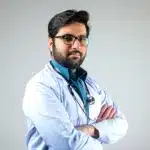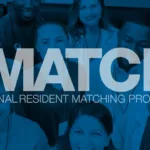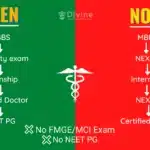The pursuit of medical education abroad is an increasingly popular choice for aspiring doctors, offering a unique blend of high-quality education, cultural experiences, and professional opportunities. This article provides an insightful guide to the journey of studying medicine overseas, from understanding the educational landscape to financial planning, and from adapting to new healthcare systems to leveraging the international recognition of an overseas medical degree.
Key Takeaways
- Studying medicine abroad provides access to world-class education, diverse healthcare systems, and a global professional network.
- Financial planning, including exploring scholarships and financial aid, is essential for managing study and living costs.
- Cultural adaptation is a significant part of the experience, enhancing communication skills and providing global exposure.
- Career prospects are broad, with opportunities for international residencies, specializations, and integration into local practice.
- Comprehensive guides and resources are available to assist with admission, selection of top medical schools, and student support services.
Understanding the Educational Landscape of Medical Schools Abroad

Comparing MBBS and MD Programs
When embarking on the journey to become a doctor, one of the first decisions international students face is choosing between an MBBS and an MD degree. Both MBBS and MD are highly respected medical degrees that require significant hard work and dedication. While the MBBS is an undergraduate degree, often found in countries like India and the UK, the MD in the United States is a postgraduate degree that follows a 4-year undergraduate program.
The structure and duration of these programs vary significantly. An MBBS typically spans 5.5 to 6 years, including theoretical and practical training, with the final year often dedicated to an internship. In contrast, the MD program in the USA requires 4 years of medical school after completing a pre-medical undergraduate degree, totaling approximately 8 years of study.
The choice between pursuing an MBBS or an MD will influence your career trajectory, the scope of practice, and the potential for research and specialization opportunities.
Here’s a brief comparison to highlight the differences:
- Duration: MBBS is 5.5 to 6 years, MD is 8 years (including undergraduate studies).
- Entrance Exam: MBBS may require exams like NEET, while MD programs often require the MCAT.
- Global Recognition: An MD from the USA is recognized worldwide, whereas MBBS recognition can vary.
- Clinical Training: MBBS programs are known for extensive clinical exposure, while MD programs emphasize research and specialization.
Selecting the right degree involves considering these factors, as well as the global recognition of the qualification and the impact on your future career in medicine.
Global Recognition of Qualifications
Pursuing a medical degree abroad is not just about acquiring knowledge; it’s about embracing a transformative journey that culminates in a qualification that enjoys global recognition. Medical degrees from accredited universities are widely acknowledged, allowing graduates to practice in various countries and enhancing their career prospects.
The seamless recognition of an overseas medical degree is a testament to the quality of education provided. Graduates are often seen with a competitive edge in the job market, as their qualifications reflect adaptability and a commitment to global healthcare standards.
- Accreditation: Ensure the medical program is recognized by relevant medical councils.
- Quality of Education: Research the reputation and teaching standards of the university.
- Competitive Edge: An overseas degree demonstrates adaptability and commitment.
Studying medicine abroad offers world-class education, career growth, financial success, and global recognition. Support systems and faculty excellence enhance the transformative experience for future healthcare leaders.
Advanced Research Facilities and Innovation
The pursuit of a medical degree internationally is synonymous with access to advanced research facilities and innovation hubs. These institutions are equipped with state-of-the-art infrastructure, fostering a culture of scientific inquiry and discovery. Students are immersed in environments that are at the vanguard of medical breakthroughs, contributing to the future of healthcare.
Medical schools abroad offer a plethora of research opportunities, including:
- Collaboration with leading medical experts
- Hands-on experience with the latest medical technologies
- Participation in groundbreaking research projects
By engaging with these facilities, students not only bolster their academic credentials but also acquire practical skills essential for a dynamic medical career.
The establishment of new centers, such as the UM School of Medicine‘s Center for Advanced Research Training and Innovation (CARTI), exemplifies the commitment to expanding research capabilities and nurturing the next generation of medical innovators.
Financial Planning for Medical Studies Abroad

Exploring Scholarships and Financial Aid
Securing financial aid is a pivotal step in your journey to study medicine abroad. Scholarships, grants, and loans can significantly reduce the financial burden of tuition and living expenses. Early application is key to accessing these opportunities, as competition can be fierce and deadlines strict.
To streamline your search for financial aid, consider the following steps:
- Research scholarships offered by universities, governments, and private organizations.
- Prepare a compelling application, highlighting your academic achievements and extracurricular involvement.
- Provide proof of financial capability, as some institutions require a bank statement showing sufficient funds.
Proactive engagement with overseas medical education consultants can provide valuable assistance in financial planning and understanding the nuances of scholarship applications.
While the costs of studying medicine abroad can be high, the investment in your future career prospects and global exposure is invaluable. Explore all avenues of financial aid to make your medical education journey more accessible.
Budgeting for Living Expenses and Tuition Fees
When embarking on medical studies abroad, a comprehensive budget is your financial compass. Tuition fees can vary widely between institutions and countries, with some offering inclusive packages that cover accommodation. For example, tuition in Georgia’s government universities ranges from USD 3,000 to USD 7,500 annually, while living costs can average USD 3,000 to USD 4,500 per year. It’s crucial to include these figures in your financial planning.
Additional costs can also impact your budget. Books and study materials can run from 400 to 1,000 USD per academic year, and health insurance may cost between 700 and 1,100 USD. These expenses, along with accommodation, living costs, and other miscellaneous items, should be factored into your budget to avoid surprises.
By proactively managing your finances, you can focus on your academic goals without the burden of financial stress.
Creating a realistic budget involves considering both fixed and variable costs. Here’s a simple breakdown to help you get started:
- Fixed Costs: Tuition fees, rent, insurance
- Variable Costs: Groceries, entertainment, travel
- Income Sources: Scholarships, part-time jobs, family support
Effective cost management is not just about tracking expenses; it’s about exploring various funding options like scholarships and financial aid. Remember to review and adjust your budget periodically, as exchange rates and living costs can fluctuate.
Cultural Adaptation and Global Exposure in Medical Education

Embracing New Cultures and Healthcare Practices
Studying medicine abroad is a transformative experience that extends beyond the classroom, offering a deep dive into new cultures and healthcare practices. By actively engaging with the community and healthcare settings, students not only enrich their medical education but also foster personal growth.
Exposure to different healthcare systems and patient demographics is crucial for developing a versatile skill set. Students learn to appreciate how cultural nuances influence health outcomes and patient interactions, which is essential for becoming a globally competent healthcare professional.
Key educational opportunities that support this learning include:
- Exposure to a diverse patient population
- Training in culturally sensitive communication techniques
- Ethical considerations in a global context
Embracing these experiences is pivotal, equipping students with the skills to excel in a global healthcare environment.
Building a Global Professional Network
In the interconnected world of healthcare, building a global professional network is essential. It’s not just about adding names to a contact list; it’s about forging meaningful relationships that can lead to mentorships, collaborations, and career opportunities. As an aspiring medical professional, your network can offer insights into different healthcare systems, guide you on licensing requirements, and open doors to clinical rotations and residencies abroad.
By actively participating in international medical communities, students integrate successfully into the workplace and practice, enhancing their employability and professional growth.
The benefits of studying medicine abroad extend to the professional realm, where students can tap into a rich vein of resources and expertise. This network becomes a valuable asset, providing a foundation for a successful and fulfilling career in medicine. To maximize the potential of your professional network, consider the following steps:
- Connect with peers, faculty, and professionals at conferences and seminars.
- Engage in international internships and exchange programs.
- Utilize online platforms to join medical communities and forums.
Navigating the World of Medical Education: Key Destinations

Understanding the Educational Systems
The global medical education landscape is vast and varied, with each country tailoring its system to meet local healthcare demands. Understanding these educational systems is pivotal for students aiming to pursue their medical studies abroad. For instance, the US medical education system is graduate-level with a strong emphasis on practical training and research, contrasting with India’s undergraduate-focused approach that leans more towards theoretical knowledge.
- Diverse Educational Systems: Each country offers unique teaching methods and clinical experiences.
- Program Types: From bachelor’s to master’s and certificate programs, options are plentiful.
- Specialization Opportunities: Align your medical career goals with the right specialization.
- Duration and Cost: Consider the length and financial commitment of your chosen program.
The decision to study medicine abroad can significantly broaden one’s perspectives and enhance clinical skills through exposure to various healthcare systems.
Navigating through entrance exams, financial planning, and cultural adaptation are also part of the journey. With strategic planning and a thorough understanding of the educational systems, students can maximize their opportunities for growth and success in the international medical arena.
Access to World-Class Medical Curricula
Studying medicine abroad offers students the chance to immerse themselves in world-class curricula that are designed to meet international standards. These programs are often recognized by the World Directory of Medical Schools, enhancing the credibility of the degree and ensuring that graduates are well-prepared for global practice.
Overseas medical universities provide access to advanced learning resources and technology. Well-equipped laboratories and modern teaching hospitals are just a few examples of the state-of-the-art infrastructure that enriches the learning experience. This exposure is crucial for students to gain hands-on experience in diverse medical settings.
By engaging with international medical communities, students experience growth that shapes them into well-rounded healthcare professionals.
The benefits of such education extend beyond the classroom, offering students a pathway to build a global professional network and to prepare for a dynamic career in medicine. The table below highlights some of the key educational opportunities available to students studying medicine abroad:
| Educational Opportunities | Description |
|---|---|
| Diverse Patient Population | Exposure to varied health conditions and demographics. |
| Communication Techniques | Training in culturally sensitive communication. |
| Global Healthcare Ethics | Understanding ethical considerations in a global context. |
The Practical Aspects of Studying Medicine Abroad

Hands-On Training and Clinical Experience
The journey to becoming a competent medical professional is incomplete without extensive hands-on training and clinical experience. Medical schools abroad offer a wealth of opportunities for students to engage in practical learning. From early stages, students are exposed to a wide range of medical cases, allowing them to apply their theoretical knowledge in real-world settings.
Experiential learning is a cornerstone of medical education, with students participating in rotations at affiliated hospitals and clinics. These rotations are designed to provide over 40 hours of direct clinical exposure under the supervision of experienced medical professionals. Such immersive experiences are crucial for developing the practical skills necessary for a successful medical career.
The real-world clinical exposure students receive abroad is not only about skill enhancement but also contributes to global healthcare equality through medical outreach.
In addition to clinical rotations, students benefit from complementary lectures and workshops that deepen their understanding of global healthcare challenges. Here are some key educational opportunities that support this learning:
- Exposure to a diverse patient population
- Training in culturally sensitive communication techniques
- Ethical considerations in a global context
Navigating Scholarships and Budgeting
Embarking on medical studies abroad encompasses not only academic fees but also living expenses, which can be substantial. Financial planning is crucial to ensure that you can sustain yourself throughout your education without undue stress. Axis Institutes and similar organizations offer guidance on comparing tuition fees and finding scholarships, which are essential in managing these costs.
Financial constraints should not deter you from pursuing your dreams. Proactive research and application for scholarships can open doors to world-class medical education without the weight of financial stress.
To effectively navigate scholarships and budgeting, consider the following steps:
- Utilize school resources to find scholarships for international undergraduates.
- Start your scholarship search early, noting deadlines and planning accordingly.
- Prepare for tests required by many scholarships, such as TOEFL or GRE.
- Gather necessary documents, including transcripts and recommendation letters.
- Apply early and widely to maximize your chances of receiving financial aid.
By following these steps and utilizing available resources, you can alleviate the financial burden and focus on your medical studies.
Embarking on the journey to study medicine abroad is a transformative experience that opens doors to global opportunities and advanced medical education. Divine Education Abroad Consultancy offers a unique Fast-Track MD Pathway, allowing you to bypass traditional hurdles like the MCAT and NEET, and propelling you towards a successful medical career in the US/UK. With a 97x higher success rate and a 100% admission guarantee, our program is designed to make your dream of becoming a doctor a reality. Don’t let the fear of the unknown hold you back; seize this chance to explore international opportunities with our expert guidance. Visit our website now to learn more and take the first step on your path to becoming a US-qualified doctor.
Conclusion
In conclusion, the journey to study medicine abroad is a multifaceted adventure that promises not only a world-class education but also a treasure trove of personal and professional growth opportunities. From the rich cultural immersion and exposure to diverse healthcare systems to the development of a global professional network, the benefits are boundless. Financial planning and cultural adaptation are key to navigating this path successfully. As you consider the wealth of options available in countries like Canada, Singapore, and Germany, among others, remember that the choice you make will shape your future as a healthcare professional. Whether you’re drawn to the advanced research facilities of Switzerland or the innovative medical curricula of Ireland, your international medical education will be a cornerstone of your career, opening doors to global opportunities and equipping you with the skills to excel in a dynamic medical landscape.
Frequently Asked Questions
What are the advantages of studying medicine abroad?
Studying medicine abroad offers access to world-class curricula, exposure to diverse healthcare systems, advanced research facilities, and the opportunity to build a global professional network. It also enhances personal development through cultural adaptation and provides a competitive edge in the job market.
How can I finance my medical studies abroad?
You can finance your medical studies abroad through scholarships, grants, loans, and work-study programs. Early application is crucial, as is researching opportunities provided by universities, governments, and private organizations. Some medical schools may offer financial aid specifically for international students.
What should I consider when choosing a country to study medicine?
When choosing a country to study medicine, consider the language of instruction, the quality and recognition of the medical program, tuition fees, living expenses, availability of scholarships, cultural aspects, and post-graduation opportunities. Your choice should align with your career goals and financial situation.
What is the difference between MBBS and MD programs?
MBBS (Bachelor of Medicine, Bachelor of Surgery) is an undergraduate degree offered in countries like the UK and India, typically lasting 5.5 years including an internship. MD (Doctor of Medicine) in the USA is a postgraduate degree that requires a prior 4-year undergraduate program, followed by 4 years of medical school.
How does international medical education enhance career prospects?
International medical education enhances career prospects by providing a globally recognized degree, fostering adaptability to various healthcare systems, and offering extensive clinical experience. Graduates are often seen as competitive candidates for residencies and positions due to their comprehensive and diverse training.
What are the benefits of global exposure in medical education?
Global exposure in medical education enriches students with cultural competence, the ability to adapt to various healthcare practices, and the development of cross-cultural communication skills. It also facilitates participation in international medical communities, contributing to personal growth and a well-rounded professional profile.














